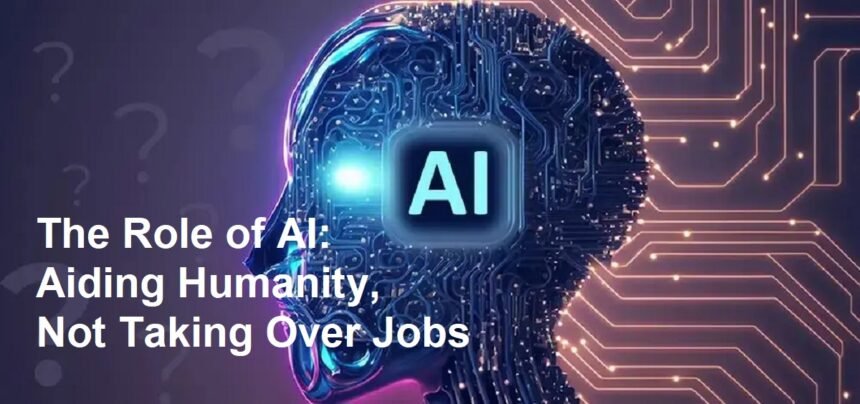Introduction
In recent years, artificial intelligence (AI) has rapidly evolved, transforming industries and changing the landscape of work worldwide. While some fear that AI might replace human jobs entirely, experts agree that AI is more likely to serve as a supportive tool, enhancing productivity and making work faster and less burdensome rather than substituting human workers altogether.
The Myth of AI Replacement
One common misconception about AI is that it will entirely replace human employees in many professions. However, the reality is more nuanced. AI excels at automating repetitive and routine tasks, allowing humans to focus on more complex, creative, and emotionally intelligent aspects of work. For instance, AI can efficiently process large datasets, handle scheduling, or automate basic customer service responses—tasks that previously required significant time and effort from humans.
Rather than eliminating jobs, AI shifts the nature of work. It takes over mundane activities, freeing up time for employees to concentrate on strategic thinking, innovation, and interpersonal interactions that machines are currently incapable of replicating. This synergy between AI and human skills can lead to more fulfilling work experiences and better overall productivity.
Accelerating Work Processes
One of the primary benefits of AI is its ability to speed up various work processes. For example, in industries like healthcare, AI algorithms assist in analyzing medical images quickly and accurately, enabling faster diagnoses. In manufacturing, AI-powered robots speed up assembly lines, reducing production times and minimizing errors.
This acceleration translates into tangible benefits—businesses can serve customers faster, healthcare providers can deliver treatments more promptly, and industries can respond swiftly to market changes. As a result, AI acts as a catalyst that enhances the efficiency of human efforts, rather than replacing them.
Reducing Workload and Stress
Another significant advantage of AI integration is its potential to lighten the workload on employees. The automation of routine tasks helps reduce stress and burnout, especially in high-pressure environments. For instance, AI chatbots handle simple customer inquiries, freeing up human agents to tackle more challenging issues that require empathy and critical thinking.
Furthermore, AI tools assist in data management, scheduling, and report generation, enabling employees to focus on tasks that require creativity, judgment, and emotional intelligence. This shift not only increases productivity but also improves job satisfaction, as workers can dedicate their time to more meaningful and engaging work instead of tedious chores.
Human Skills Still in Demand
Despite the remarkable capabilities of AI, it is important to recognize that human skills remain irreplaceable. Empathy, ethical judgment, complex problem-solving, and innovative thinking are qualities unique to humans. AI systems operate based on algorithms and data; they lack the emotional intelligence necessary for nuanced decision-making or understanding human nuances.
Moreover, as AI takes over routine tasks, new roles and industries are emerging, requiring human oversight, programming, maintenance, and development of AI systems. This shift opens up new opportunities for employment, emphasizing the need for ongoing education and skills development.
Preparing for the Future
As AI continues to evolve, the focus should be on fostering collaboration between humans and machines. Organizations should invest in training employees to work alongside AI tools, positioning technology as a partner that enhances their capabilities rather than threatens their jobs.
Policymakers and educators also have a role in preparing the workforce for this transition by emphasizing lifelong learning, digital literacy, and adaptability. Embracing AI as a supportive rather than a replacement technology will lead to a more resilient and innovative economy.
Conclusion
AI is transforming the way we work, but its primary role is to support, accelerate, and lighten human efforts rather than replace them. The human touch—creativity, empathy, judgment—remains irreplaceable and vital in the workplace. When harnessed properly, AI can make jobs faster, easier, and more fulfilling, paving the way for a future where humans and machines work together harmoniously for mutual benefit.












